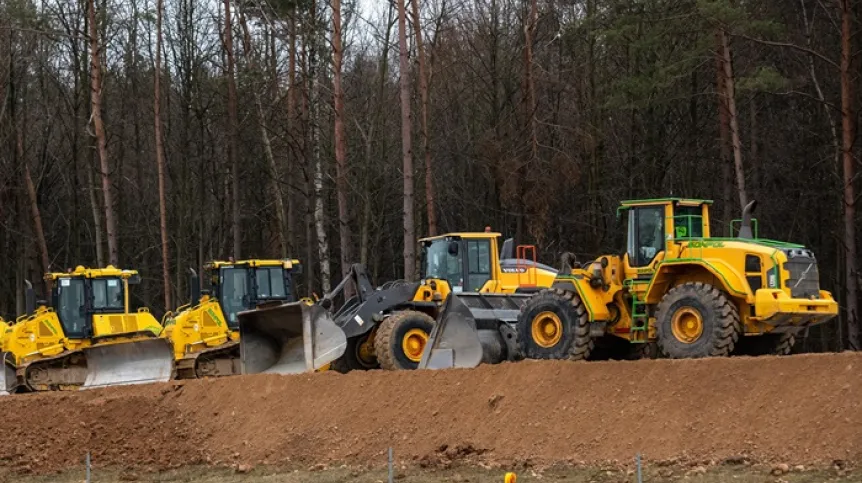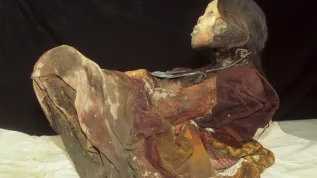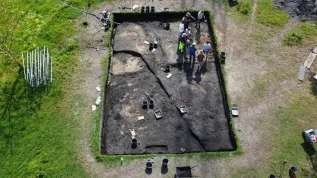
Archaeologists in Poland have uncovered significant Neolithic and Bronze Age artefacts, including traces of a farming settlement dating back to 4000 BCE and a cemetery from 2000 BCE.
The discoveries on the planned S8 expressway between Kobierzyce and Jordanów Śląski were revealed during a press briefing on Thursday, with researchers detailing the nature of the finds.
Among the most notable is a settlement from 4000 BCE, suggesting that the area was inhabited by an agricultural population during the Neolithic period.
“These people occupied this entire area. It was also characteristic of them to stay in one place for a maximum of a dozen years. Therefore, it is not surprising that there are many places where their traces can be found,” said archaeologist Ireneusz Klimczak.
The second major discovery was a cemetery associated with the Únětice culture, which dates back to the Early Bronze Age around 2000 BCE.
This community likely migrated to Lower Silesia via the Moravian Gate or the Kłodzko Valley, as archaeologists suggest the region’s fertile land would have attracted settlers.
“We found a dozen or so burials at the beginning, and now we have discovered more. They are interesting; the deceased were buried in the foetal position with their arms crossed on their chests,” Klimczak said. (PAP)
kak/ dki/













